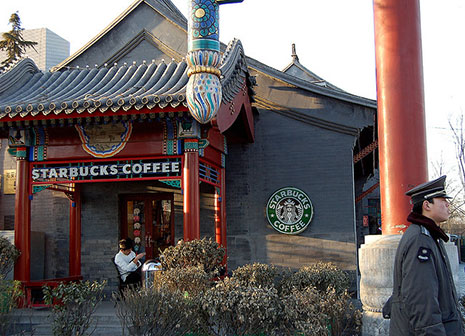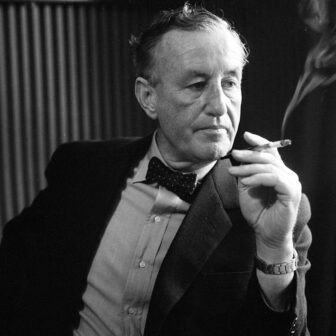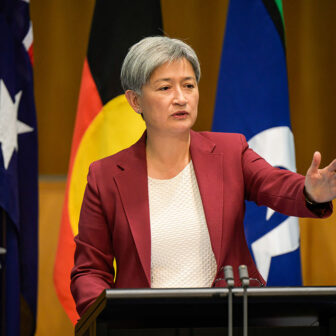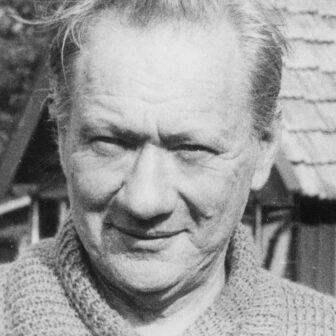ABOUT halfway into this intriguing and much discussed political novel, the protagonist Lao Chen refers to Lu Xun’s poem “A Good Hell Lost.” He poses a question: “Given the choice between a good hell and a counterfeit paradise, what will people choose? Whatever you say, many people will believe that a counterfeit paradise has got to be better than a good hell. Though at first they recognise that the paradise is bogus, they either don’t dare or wish to expose it as such. As time passes, they forget that it’s not real and actually begin to defend it, insisting that it’s the only paradise in existence.”
The story of The Fat Years unfolds against the background of a strong and risen China, a China in its “Golden Age” – or as one wag puts it, the “Age of Complacency.” It takes place in the very near future: 2013. Two years previous, the world had suffered a catastrophic economic meltdown; the crisis threatened to drag China down into economic, social and political mayhem. Miraculously, China emerged, apparently instantaneously, into its new Golden Age, strong, prosperous and stable. As the world’s preeminent power, it has rewritten the global economic rules of the game to its own advantage, yet thanks to a strategic soft-power approach, the result has been harmonious and beneficial international relations.
As for the people living in this paradise, they are happy, almost eerily so; there are echoes the Stepford Wives or a Truman Show, albeit with Chinese characteristics. They have wealth, they have entertainments and divertissements galore, they know how to have fun, and they know their French wines. They spend a lot of time on the internet and on self-congratulation, frequently combining both activities. They are able to do and get almost anything they want in life, so long as they don’t cross certain boundaries of acceptable behaviour, including those related to political expression. Because these boundaries have a way of shifting, people involved in borderline activities such as worship in non-sanctioned Christian churches tend to remain more alert and anxious than most. But who cares? Lao Chen describes this situation as “ninety-percent freedom.”
Lao Chen, whose parents were Shanghainese but who grew up in Hong Kong and Taiwan, lives in the capital of this paradise, Beijing, and is pretty happy with it. As the novel opens, however, he encounters several people from his past whose different take on reality threatens his own complacency. The first is Fang Caodi, an intellectual whose personal history reflects the vicissitudes of modern China. Fang’s words, “A month is missing. I’m saying an entire month has gone missing,” open the novel. Fang is obsessed with discovering what happened in what he insists was a “missing month” between the global economic crisis and China’s rise. Lao Chen, unable to recall that there was any gap between the two phenomena at all, doesn’t understand the problem and thinks Fang slightly mad.
Others who have somehow failed to buy into the general air of cheerful insouciance include the former child labourer turned runaway and guitarist, Zhang Dou, and Dong Niang, a prostitute and heroin addict who likens the ambient vibe of contentment to a kind of “lukewarm little high” or, in her Australian boyfriend’s formulation, “hi-lite-lite.”
Lao Chen is reluctant to think about all this, much less get involved. But when he re-encounters another malcontent, Xiao Xi, he finds himself drawn in despite himself.
Xiao Xi had been a young low-level magistrate whose first job was to help carry out the fierce anti-crime campaign of 1983, in which people were sometimes arrested, tried and executed in the space of a day. She was so traumatised by the callous abuse of people’s rights, the disproportionate fierceness of the sentences (death, in many cases) and the number of innocent people who suffered as a result, that she quit the legal system then and there.
Lao Chen first met Xiao Xi in the eighties, when she and her mother ran the Five Flavours restaurant near Peking University. The restaurant was popular with students and foreigners, and served as something of an intellectual and artistic salon. Lao Chen was a habitué of Five Flavours and had always been attracted to Xiao Xi, whose good looks were complemented by her fiery intelligence and strong sense of right and wrong. At first, on their reacquaintance, she too appears somewhat mad, anxiety etched into the lines of her aged but still attractive face, continually switching email addresses and convinced (rightly, as it turns out) that she’s being watched by the security forces. Lao Chen knows that to pursue her is to court trouble and indeed, to lose paradise, but love has its own logic.
Fang, meanwhile, has begun to piece together evidence that the events of the missing month included an anti-crime campaign that made 1983 look like a pair of fake-fur handcuffs but which, like the concomitant food hoarding and unrest, has been meticulously purged from the historical record. How and why is only part of the mystery that drives the novel; the real question is how and why the people who lived through it are, only two years on, so able and willing to forget.
THE POST-1949 history of China is littered with such mysteries: the intense and frequently coercive campaign to bring China’s intelligentsia round to communism in the early fifties, which is described in Yang Jiang’s 1988 novel Baptism, for example, has been almost entirely forgotten today. It’s a fair guess that most people in China today would be hard-pressed to come up with many details of major post-’49 historical traumas like the Anti-Rightist Campaign of 1957 or even the more recent events of 1989. Chan Koonchung has said that while writing The Fat Years he was thinking about these things but also more specifically about 2009, when China emerged from the global economic crisis of 2008 healthy and sound – and then sentenced the intellectual Liu Xiaobo to eleven years in jail for an act of dissident political expression. Although The Fat Years appears to be speculative fiction, in that same interview Chan describes it as a work of “realism.”
Chan paints a vivid and detailed portrait of China as simultaneous utopia and dystopia. In order to accurately describe China today, he has written elsewhere, one needs to be like the famous Tang Dynasty songstress Jiang Shu, who was capable of singing two songs at the same time, one in the back of her throat and the other from her nose.
Chan Koonchung has a similar background to that of the narrator Lao Chen and, one imagines, he shares a similar sense of both familiarity with and alienation from the world in which he lives: as Lao Chen puts it, he is a “dispassionate observer.” Chan came to prominence in Hong Kong in the eighties as the founder of the stylish City magazine, and was for a time its overseas publisher/distributor. Those in the know will see the wink in the novel’s many references to Reading magazine. The Fat Years is his first novel set in China. Although not published there, enough copies have got in to make it a hot topic in intellectual circles; at a fashionable party I attended in Beijing in late 2009, the host presented all of her guests with a copy as a gift.
The author’s fictional style could be described as reportorial, with few metaphors or other stylistic flourishes. The narrative logic of switching between points of view (first and third person, multiple perspectives) is not apparent and more than once he undercuts his own narrative suspense with foreshadowing. One of the more fascinating characters sadly more or less disappears from sight by the end: Xiao Xi’s son Wei Guo, a hyper-nationalist, neo-fascist and intellectual thug whose most ardent dream is to work for the Department of Propaganda: “I think that the Central Department of Propaganda is so romantic… [It] leads the spiritual life of the entire country and the people.”
Yet for the most part the story is compelling, the humour satisfyingly dry, the characters vividly drawn and their stories cleverly interwoven. On the other hand, just as The Fat Years prepares to deliver the narrative punch the entire book had been leading up to, Chan pulls it in order to pronounce, via a character who is a Politburo member, a barely interrupted treatise on China’s domestic and foreign policies for an age of prosperity, which runs on for forty-odd pages. Lao Chen is a fan of Raymond Chandler and Dashiell Hammett; Chan Koonchung would know that either of them would have tightened it up.
Yet the exposition contained in these forty pages is in many ways at the heart of the novel. Not only does it explain the lost month, it presents the logic of it: the confident assumption of the Communist Party leadership that in China, “the people fear chaos more than dictatorship.” It presents a relatively coherent, persuasive and detailed master plan for China’s economic and political future that may be far-fetched but is not implausible and is in sometimes oblique ways reflective of current affairs:
There are people who are probably thinking now that China has risen and entered into an age of prosperity, we can bring an end to one Party dictatorship! Twenty years ago, He Dongsheng himself had also thought that. He would probably have joined a faction in the Party that advocated democratic reform and even gone so far as to have supported a Chinese Gorbachev. But by now He Dongsheng had lost any faith he might have had in Western-style democratic systems. More importantly, he knew that after 4 June 1989, there were no idealists left in the Communist Party. As the group with a monopoly on political power in China, the Communist Party exercised power in order to protect itself – people became officials in order to profit from their position and there was absolutely no chance of a Gorbachev-like figure emerging.He Dongsheng not only had lost his passion for political reform, he cynically now believed that not only shouldn’t reform be carried out but that it cannot be carried out, that reform could only lead to chaos… He could not imagine what a post-communist democratic China might be like. He said, and not without sarcasm: “Political reform? Is it that simple? In the end, you’ll emerge from the transition, not with the commonwealth you desire, not the European style of social democracy or the American style of a free, democratic constitutional government, but rather a Chinese style fascist dictatorship that’s a compendium of nationalism, cultural traditionalism, patriotism and national racial purity.”
Xiao Xi retorted: “You’re fascists already, don’t tell me you need a transition?”
Earlier in the book, Xiao Xi reflects that “Beijing in the eighties was such a charming place, an era full of possibility.” In prosperity, paradoxically, the possibilities narrowed.
“Which would you choose: the good hell or the false paradise?” she asks. Chan Koonchung lets the reader decide. •
Postscript: I wrote this review for the China Heritage Quarterly after reading the novel in its original Chinese, and I’ve made only minor changes to that version here. The translations from the text quoted above are my own.
Michael Duke, who translated The Fat Years into English for Doubleday, has arrived at different conclusions from my own with regard to some of the trickier phrases in Chinese, including what he calls “The Age of Satisfaction” but I believe is better rendered as the “Age of Complacency,” with that word’s implication of uncritical satisfaction. Similarly, I think that “age of prosperity” is a closer approximation to the Chinese title than “the fat years,” which calls to mind the prophecy in Genesis that seven “fat years” will be followed by seven lean ones. There’s no sense here that it has to end.
I have other quibbles but they’re relatively minor. This is a book worth reading. I especially commend Julia Lovell’s preface, which deftly contextualises the novel for the general reader, demonstrates its relevance to the understanding of contemporary China and gives a lively account of its reception among the mainland readers who’ve avidly sought it out despite the fact that it’s officially unavailable.




